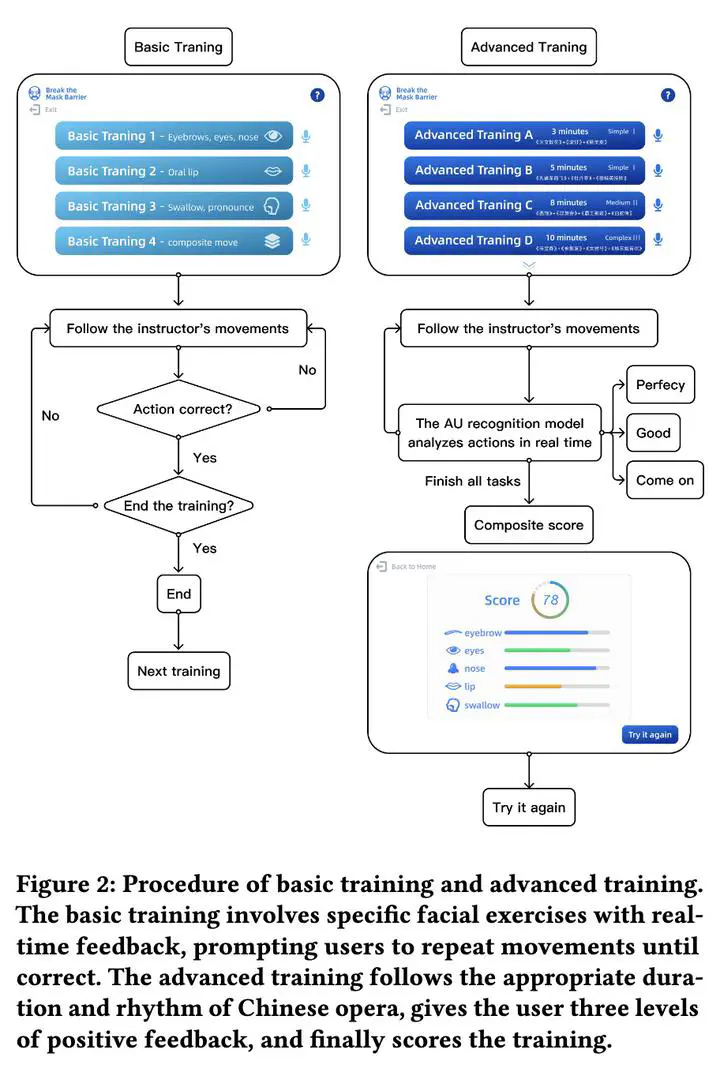"Break the Mask Barrier": An AU-based Rehabilitation Training System for Parkinson's Hypomimia

Abstract
Hypomimia, commonly known as the “masked face,” is a nonmotor symptom of Parkinson’s disease characterized by delayed facial movements and expressions, as well as difficulties in articulation and emotion. Currently, the primary method for detecting hypomimia relies on subjective evaluations by neurologists, and conventional rehabilitation approaches predominantly depend on verbal prompts from physicians. There remains a lack of accessible, patient-friendly, and scientifically rigorous assistive tools for hypomimia treatment. We aim to develop a digital therapy system based on Action Units (AUs) for the rehabilitation of Parkinson’s hypomimia. This system enhances engagement through rehabilitation exercises set to Chinese opera music while also fostering initiative by integrating digital therapy with traditional facial training methods. A pilot study involving seven patients with hypomimiasymptoms and ten physicians was conducted. The results indicated a positive impact on participants’ self-efficacy, validating the system’s applicability in therapeutic settings and highlighting its potential value in clinical applications.